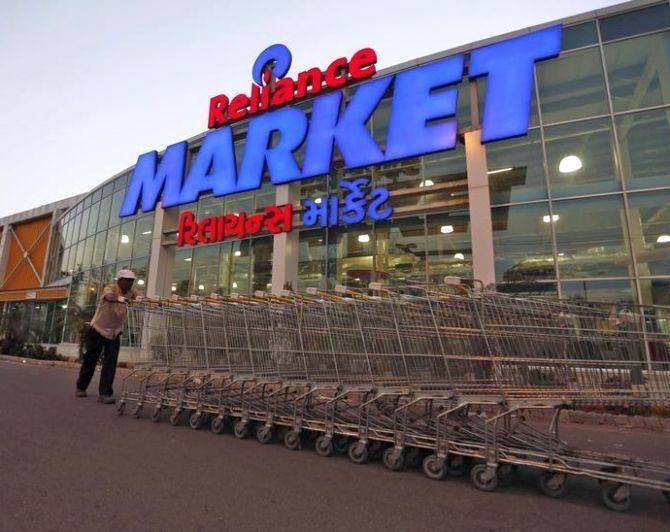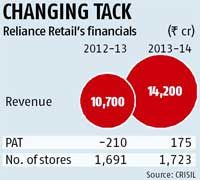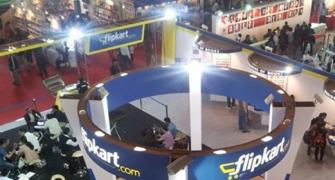 In what is seen as a shift in financing strategy, Reliance Retail, the country’s largest retailer that until recently relied on parent Reliance Industries Ltd (RIL) for funding support, is going to raise up to Rs 5,000 crore or Rs 500 billion from banks and the capital market.
In what is seen as a shift in financing strategy, Reliance Retail, the country’s largest retailer that until recently relied on parent Reliance Industries Ltd (RIL) for funding support, is going to raise up to Rs 5,000 crore or Rs 500 billion from banks and the capital market.
The retail company plans to avail of long-term bank funding of up to Rs 2,000 crore or Rs 20 billion and raise another Rs 3,000 crore or Rs 30 billion by issuing commercial papers.
The money raised through commercial papers, which will be issued in tranches based on financing needs, is expected to be used for meeting working-capital requirements, say bankers. “Reliance Retail is growing rapidly and has turned profitable.
Now it is planning to raise commercial papers at competitive rates to fund working-capital needs,” said a Reliance Retail spokesperson. Parent RIL had infused Rs 6,450 crore or Rs 64.50 billion (equity of Rs 4,710 crore or Rs 47.10 billion and debt of Rs 1,740 crore) in Reliance Retail as on March 31.
This increased from Rs 5,630 crore or Rs 56.30 billion at the end of March last year.
The loans taken by the retail company from sources other than RIL have been less than Rs 200 crore or Rs 20 billion.
Rating agency CRISIL has assigned a “AAA/Stable” rating to the company’s plan for long-term bank debt and a “A1+” rating to the commercial paper. Technopak Advisors Chairman Arvind Singhal said: “Debt is better than equity.
If you are confident about the business, you can go for debt from banking sources.” CRISIL also said the retail unit would remain a strategically important investment for RIL, given the parent’s substantial investments in the company and focus on setting up consumer-facing businesses. The ratings reflect Reliance Retail’s strategic importance to and continuation of strong management and financial support expected from parent RIL (rated “AAA/Stable”).
The ratings for Reliance Retail also factor in a healthy business risk profile, supported by its strong market position.
These rating strengths, though, are partially offset by the company’s moderate financial risk profile, exposure to risks related to its sizeable expansion plans over the medium term and susceptibility to intense competition in the retail sector.
Reliance Retail would be exposed to implementation and execution risks in its expansion plans over the medium term, CRISIL said.
During 2013-14, the number of Reliance Retail stores was 1,691 stores (11 million square feet of space) across 148 cities. Its overall revenues grew 34 per cent, as the company turned profitable at the net-profit level.











